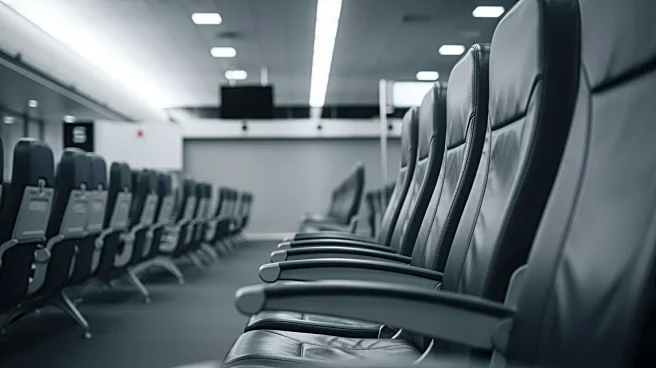What's Happening?
Delta Air Lines, along with other major U.S. carriers, is reducing flights due to a government-mandated 10% cut in air traffic capacity. This decision, announced by the Department of Transportation, is a response
to chronic air traffic controller shortages exacerbated by the ongoing government shutdown. The reduction affects 40 major U.S. airports, including those in New York, Chicago, Miami, Atlanta, and Los Angeles. The cuts are intended to maintain safety in the airspace, as the current staffing levels cannot support the usual volume of flights. Airlines are strategically canceling flights, often entire round-trip loops, to ensure aircraft and crew are positioned correctly for future operations.
Why It's Important?
The reduction in flights is significant as it impacts millions of travelers across the United States, potentially leading to widespread disruptions in travel plans. The decision underscores the critical role of air traffic controllers in maintaining air travel safety and the broader implications of government shutdowns on essential services. Airlines are forced to make strategic decisions about which flights to cancel, considering factors like revenue and passenger rebooking options. This situation highlights the vulnerability of the aviation industry to staffing shortages and government policy changes, affecting both the economy and consumer confidence in air travel.
What's Next?
The duration of these flight reductions is uncertain, as it depends on the resolution of the government shutdown and the restoration of adequate staffing levels. Travelers are advised to stay informed about their flight status through airline apps and notifications. The situation may lead to increased advance cancellations, and passengers should prepare for potential changes to their travel plans. Airlines will continue to adjust their schedules based on operational needs and government directives, with the possibility of further disruptions if the shutdown persists.









